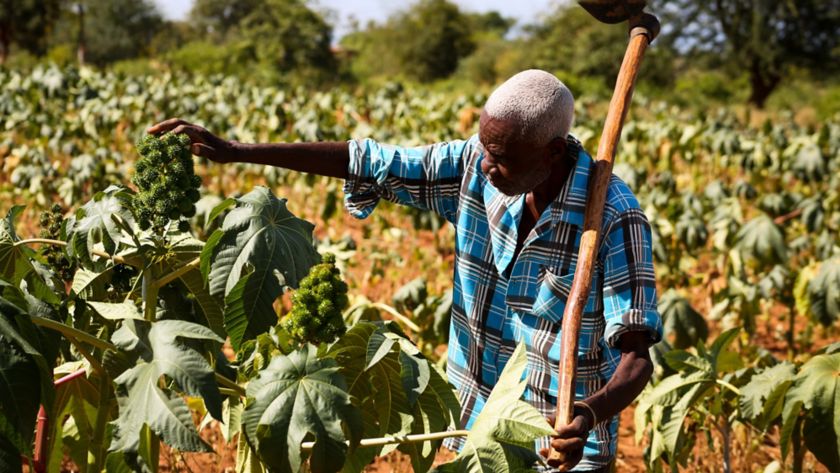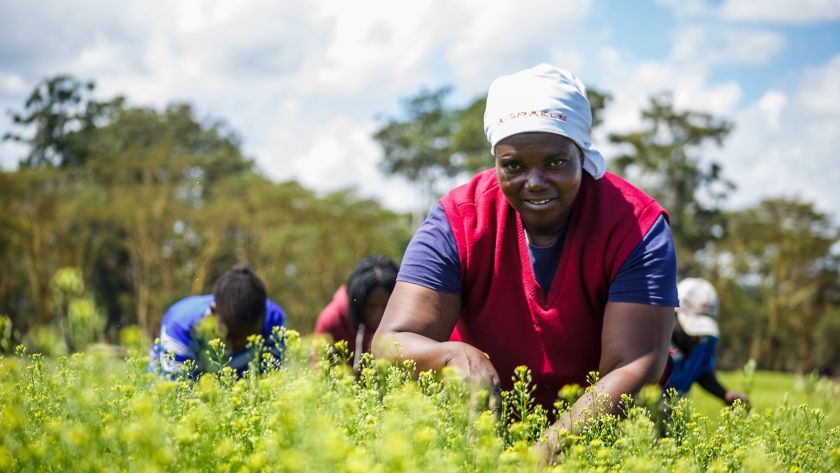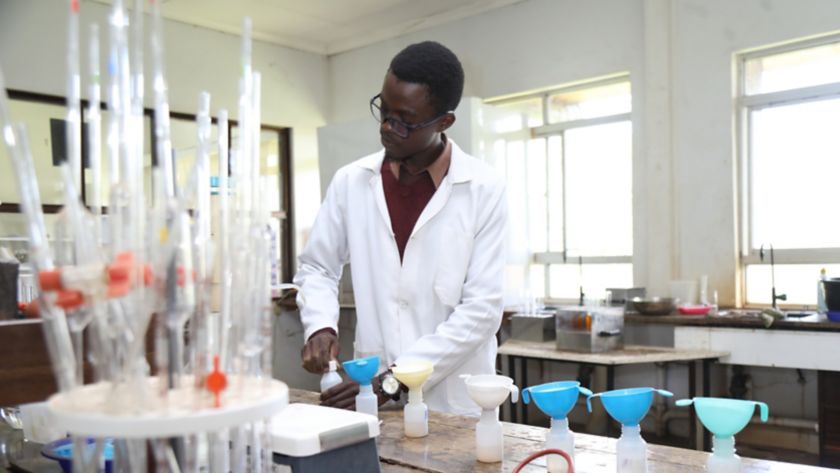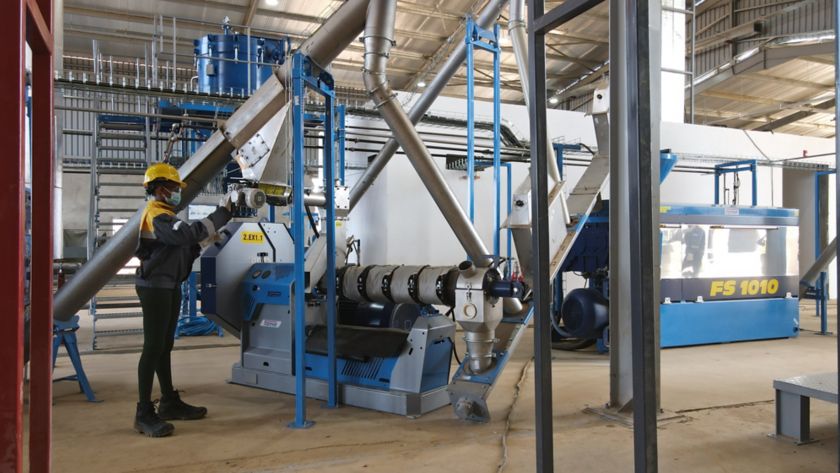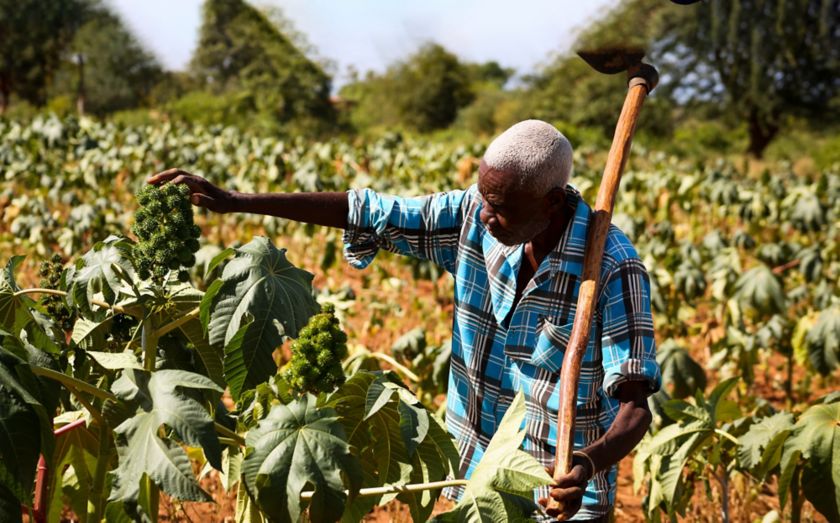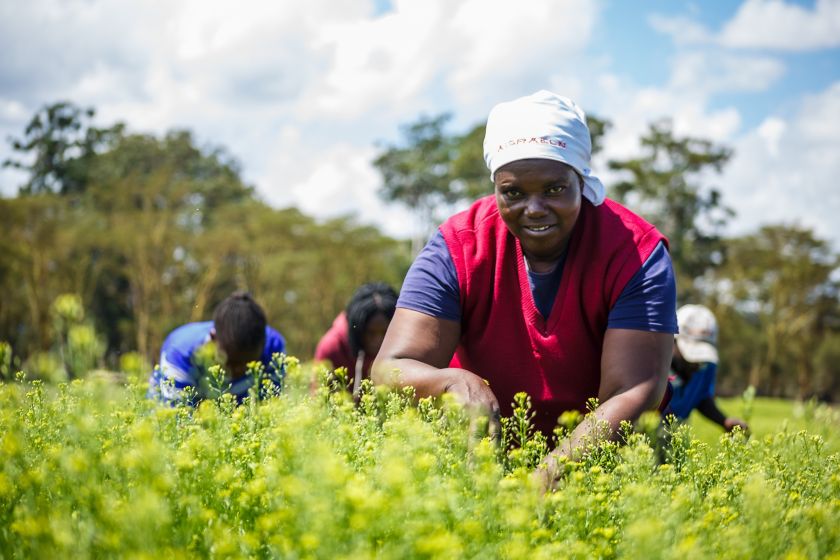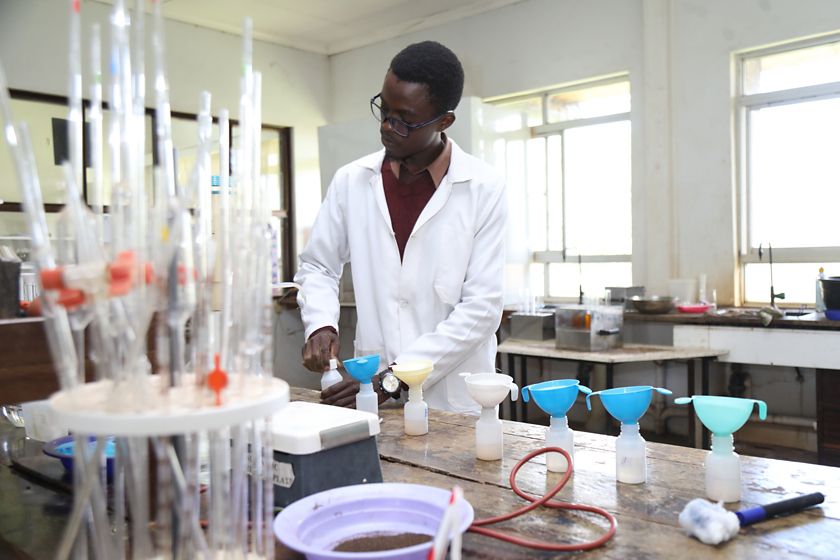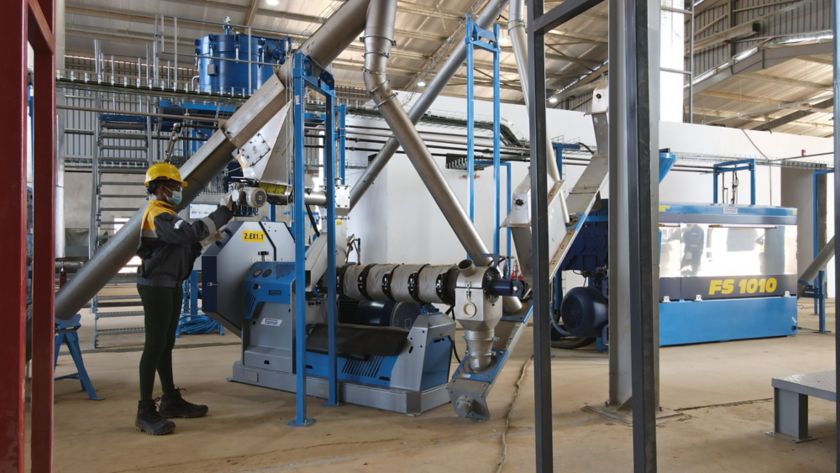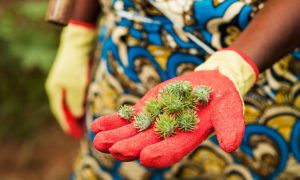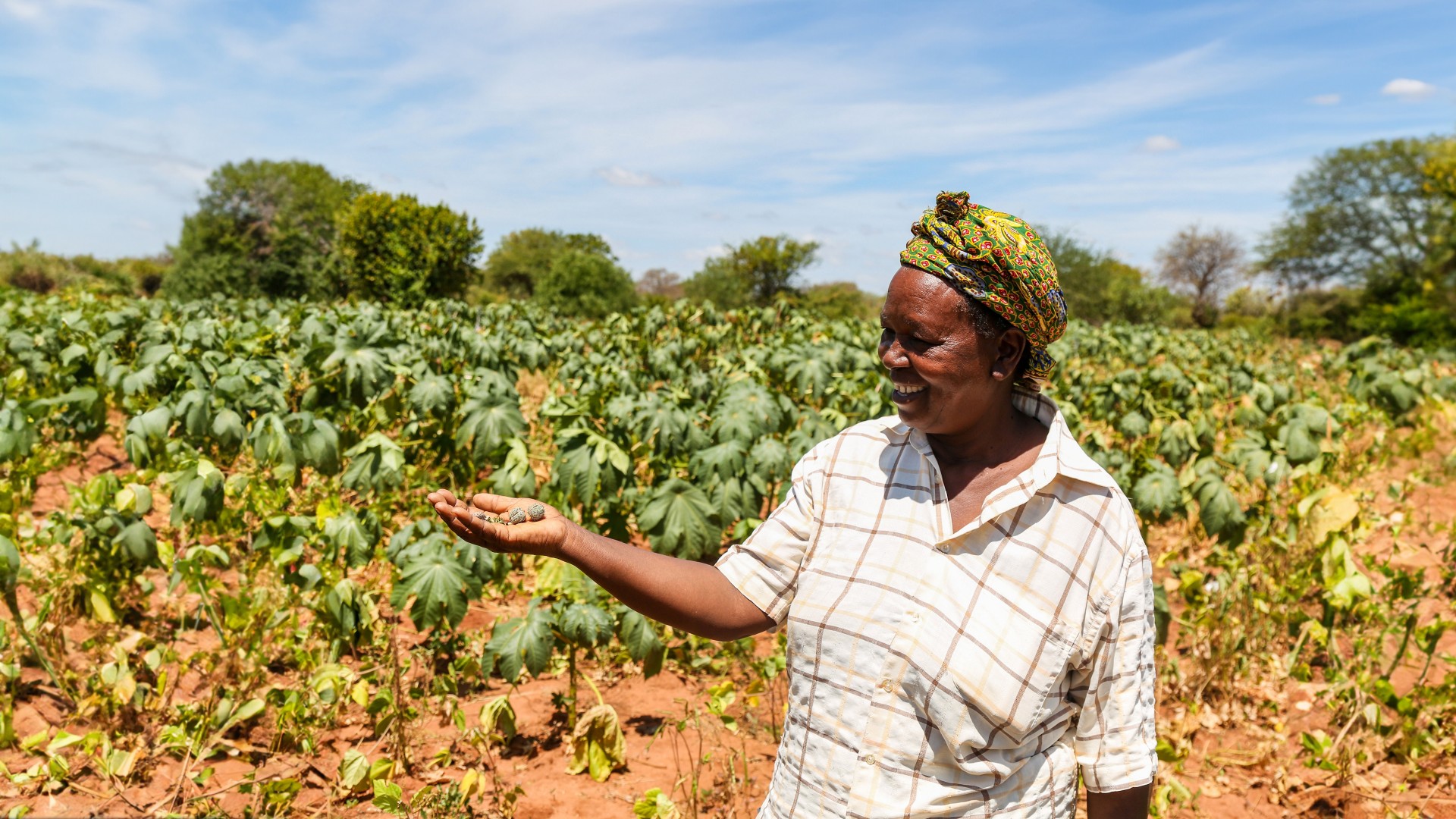
We operate in Kenya in the exploration and agro-industrial sectors. The country is leading Africa in the production of vegetable oil for Eni’s biorefineries in Gela and Venice. This is being done through a circular economy model that benefits local communities and helps to ensure a sustainable supply of raw materials to the global energy market. In 2023, Kenya’s national airline became the first in the world to use sustainable aviation fuel (SAF) produced by Enilive on its Nairobi-Amsterdam route.
Africa is playing an increasingly important role in the global economy and geopolitics. To support its constant demographic growth and economic development, the continent needs to invest in energy infrastructure. This is especially true in the sub-Saharan region, where millions of people still lack access to electricity. The energy transition provides an opportunity to meet these challenges by modernizing the energy mix and making it more efficient.
How we operate in the country
From Agip Kenya to exploration
Agip Kenya was the first Eni company to operate in the field of import and distribution of oil products and by-products, nitrogen fertilisers, and synthetic rubber from the 1960s. Today, as Eni Kenya, we are also engaged in exploration activities in the offshore in six blocks located in the deep waters of the Lamu Basin, off Mombasa.
First cargo of bio-oil from Kenya to Italy
Kenya is the first African country in which we have built an oilseed pressing plant for the extraction of vegetable oil for the production of biofuel. Located in Wote, Makueni County, the centre, also known as an agri-hub, has a capacity of 15,000 tons per year and, since 2022, has been supplying the Eni biorefinery in Gela.
This is a new model in the agribusiness sector that allows Kenya to enter the global industrial chain for the production of agri-feedstock, which are raw materials cultivated on degraded, semi-arid or abandoned land that are not in competition with the food supply chain.
The first plant will be followed by a second. The development plan for the agri-hubs generates income and market access opportunities for tens of thousands of farmers and provides for them to also function as training and technical support centres for local workers with the goal of contributing to the improvement of agricultural production and soil regeneration, also through the adoption of good practices and the promotion of food security in the territories.
Oil collection and other initiatives
As part of the circular economy projects launched across the country, there is also the collection of used cooking oil (UCO) involving fast food chains, restaurants and hotels, and a study for the conversion of the Mombasa refinery into a biorefinery.
Highlights
The data were selected from those contained in our official documents.
agri-feedstock production through to 2026
achieve a vegetable oil capacity with the second agri-hub launched in 2023
farmers involved with the cultivation of more than 40 thousand hectares in 2023
families involved in agri-feedstock projects
agri-feedstock production through to 2026
achieve a vegetable oil capacity with the second agri-hub launched in 2023
farmers involved with the cultivation of more than 40 thousand hectares in 2023
families involved in agri-feedstock projects
In Kenya, agri-hubs for more sustainable mobility
A photobook documents the involvement of local farmers in the production of bio-oils, which are used as raw materials for biofuels.

Our history in Kenya
From petroleum products to biofuels, we share the country’s path towards the energy transition.
May
2023
December
2022
October
2022
July
2022
December
2021
July
2021
July
2021
2013
1960
First flight from Africa with Enilive
Kenya Airways flight covering the route Nairobi-Amsterdam is powered by sustainable aviation fuel produced by Enilive.
The SEMAKENYA II started
In collaboration with AICS, the initiative aims to test climate-resistant sustainable agricultural technologies and practices inMakueni County.
Export of eegetable oil launch
The first cargo of vegetable oil for biorefining produced by Eni in Kenya leaves the port of Mombasa bound for the biorefinery in Gela, Italy.
The first agri-hub is operational
The Makueni agri-hub for the collection and pressing of oilseed is operative with the launch of vegetable oil production for biorefineries.
Agri-feedstock production begins
Around 25,000 local farmer families are involved in the production of agri-feedstock for the biorefining supply chain.
Memorandum of understanding with AICS
The collaboration agreement covers key sectors for the development of the country, such as agriculture and the environment, healthcare and education, innovation and access to energy.
Memorandum of understanding with the Government of Kenya
The agreement provides for the promotion of the decarbonisation process through the integration of the circular economy along the entire supply chain.
Eni Kenya is born
Activities in the exploration and production of natural resources resume.
Agip Kenya is born
The company starts production and distribution activities of petroleum products and by-products, nitrogen fertilisers and synthetic rubber.
Towards a new energy
Visit the agri-feedstock projects that contribute to the increasingly sustainable supply of our biorefineries.
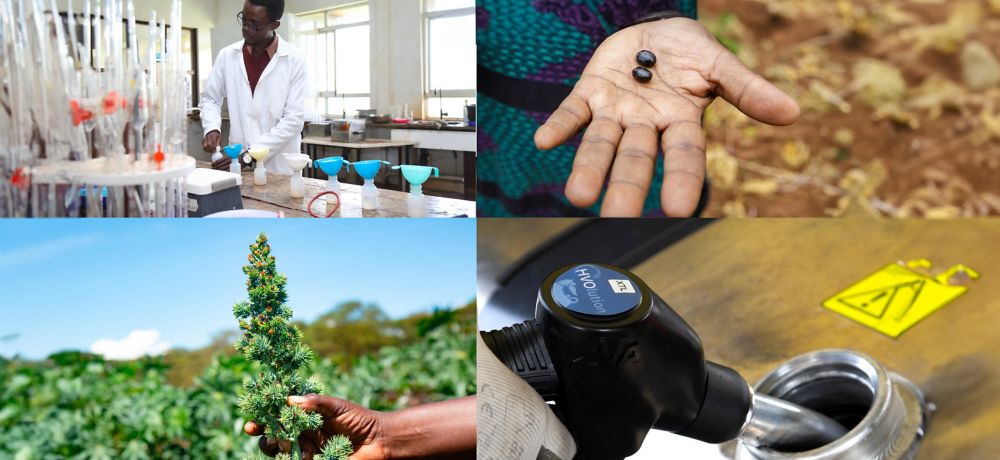
Press releases
Press releases
Learn more about our activities in Africa
Eni Kenya
Kenya Branch
Eaton Place
5th Floor
Gigiri, United Nations Crescent
Off Limuru Road
P.O. Box 2913-00621
Nairobi, Kenya





















